Is there a fix for window condensation?
I assume these windows are 28 years old. In the winter, I have to wipe 6 of our 10 windows down every morning. Some have small puddles on the windowsill. A couple of windows have some rot and peeling around them. We really aren’t able to pay for new windows right now. Is there anything I can do instead? I had an energy saving company come out last spring and they did pressure/air loss testing and said as far as that goes, I am good. I am not sure what is wrong. Maybe because we keep the heat on 63? We live in mid/deep south where it is often humid.


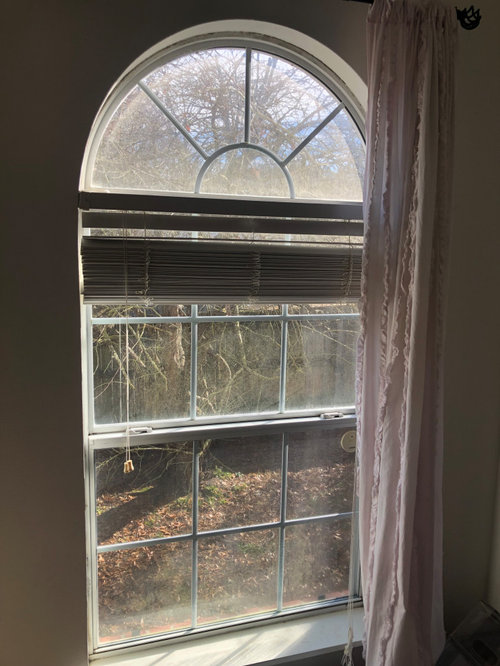

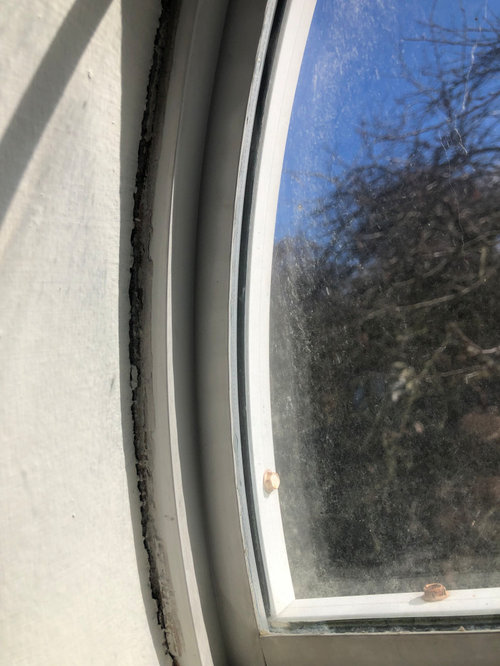
Comments (22)
- Kara M thanked sheilajoyce_gw
John 9a
4 months agolast modified: 4 months agoI have also lived in the south for all my life and have seen some different windows, new and old style. It's possible you may have some water leaking in from the outside when you have a heavy wind along with rain....I had one that leaked only during rain and a heavy wind and eventually discovered a minor roofing problem. BUT, I think your issue is from interior condensation. Your window frames are surely aluminum and aluminum is a very good conductor of heat and are probably quite cold to the touch on the inside surfaces. We have so much humidity in our air down here that the humidity condenses out of the air on any cold surfaces....like your aluminum window frames. When you are able, financially, changing out your older aluminum-framed windows to the newer vinyl-framed windows will stop the condensation on the frames since the vinyl frames are a muuuuch lesser conductor of heat. If you touch a vinyl frame in the winter, it may feel a little cool but probably much more similar to your home's inside temperature. Double-pane glass will also reduce or stop condensation on the glass. In the meanwhile, if changing out your windows is not financially possible at the moment, you can reduce the humidity in your home with a portable dehumidifier you can find in the big box stores. I think they are in the $250 range so they are not cheap....and they may reduce the humidity and sweating issue but probably will not stop it since there will still be some moisture in the air. We just don't live in a desert. The only other thing I can think of is to insulate the aluminum surfaces on the insides of your windows. There may be some product someone else can recommend. Your goal would be to put some kind of foam over the aluminum so the exposed surface is not in contact with your home's interior air. It would probably look awful but perhaps choose a time when your windows are dry....a warm day when they are not sweating....and stick some foam sealing strips along the aluminum frames inside your window. That seems like an awful solution for you but that is the concept and perhaps it will lead to a better option!
Update edit: Oh, I see you do have double pane windows
Kara M thanked John 9aRelated Professionals
Clovis Kitchen & Bathroom Remodelers · Garden Grove Kitchen & Bathroom Remodelers · Las Vegas Kitchen & Bathroom Remodelers · El Sobrante Kitchen & Bathroom Designers · Dallas Window Contractors · Wichita Window Contractors · Dayton Window Contractors · Greenburgh Window Contractors · Kearns Window Contractors · Spanaway Window Contractors · Vista Park Window Contractors · Wareham Interior Designers & Decorators · Buena Park General Contractors · Chillicothe General Contractors · Rock Island General Contractorsjrb451
4 months agoDo you have gas heat? Logs? Stove? Do you run your vent hood when cooking? Does it vent outside? Same for your bathrooms? A dehimidifier, or two, will help. Aluminum windows in this climate are not the optimum way to go.
Kara M thanked jrb451A Mat
4 months agoI had a travel trailer whose windows developed condensation overnight. Some years I applied the tempprary storm windows, a plastic film Other years I ran a couple of fans.
Gas stove, gas heat, humid area.
Dehumifiers use a lot of electricity.Kara M thanked A Matklem1
4 months agoWindows on Washington said "Leave the blinds open as well."
I disagree but since you wrote PRO beside your name I'm willing to listen to why you believe it.
Meanwhile Kara I recommend you temporarily cover a window cavity with a blanket or plastic then compare amount of moisture on that window with others. Just place blanket against wall and tack in place at top corners. There are few insulators better than air. Trapped air between room and window acts as insulation which in turn reduces/prevents condensation on window. If you agree blanket helps you can put insulated drapes on windows (make sure they hug wall). Alternatly you can put clear plastic over windows inside and/or outside to alow light to pass while preventing condensation. The double panes SHOULD minimize condensation so outside pane might be leaking outdoor air into space between panes. Inspect exterior of windows for missing seals,busted glass and caulk. If plastic seal strips between glass and frame are missing,replace them or simply put caulk in their place. Good luck
Kara M thanked klem1oberon476
4 months agolast modified: 4 months ago@klem1 While I can't speak for him, I strongly suspect that the reason Windows on Washington replied as he did is because it happens to be a correct answer for the question asked; while your "solution" on the other hand, not so much. Also, the PRO next to his name is well earned and absolutely true.
In reply to the original question, first you need to think of the dew point temperature of the glass. Dew point is defined as saturation vapor density or 100% relative humidity. Condensation occurs on window glass because the temperature of the glass is below the dew point temperature.
So in order to stop condensation from forming on the room side surface of a window you must either lower the dew point temperature to a level below the temperature of the glass surface, or else warm up the glass surface to a temperature above the dew point temperature.
The only way to lower dew point temperature is to reduce the moisture in the air of your home. If you have a lot of plants, or use a humidifier, or boil your food, or take showers, or breathe, you are putting moisture into your air. Since cooking, showering, and breathing are important, there is no way to avoid adding moisture to your air, however if there is excess moisture then make sure that you use exhaust fans, if you have them. Do you cook or heat with gas? Gas water heater or fireplace? Gas appliances can add a lot of moisture to your air, so if you have a lot of excess moisture, and you haven't done it recently, might be a good idea to get any gas appliances inspected to make sure that they are operating at peak.
If no gas, and no excessive cooking, showers, or breathing, and you are religiously using your exhaust fans, then a dehumidifier might be worth considering if nothing else seems to help.
The other consideration after removing moisture is to raise the temperature of the glass in your windows to a level above the dew point temperature of the glass.
While raising the temperature of the glass can be difficult and might involve fans and portable heaters and such, sometimes the best solution is not so much raising the glass temperature, but finding ways to avoid lowering the temperature,
First thing to do to avoid lowering the temperature of your windows is to not cover them when it's cold outside. To help keep the glass warmer, you need to allow room air to flow over the glass. The one exception is if you are covering them with something that seals the window, is air and moisture impermeable, as well as airtight. An interior storm window that meets the previous considerations can be a very good idea. The aftermarket clear plastic films can also be a very good idea. Covering your windows with blinds, shades, curtains, blankets and so on, are all very bad ideas because they block room air from warming the window glass and could cause the glass to drop below the dew point temperature resulting in wet windows.
As mentioned previously, you have aluminum windows, and while you have dual pane windows, it appears from the pictures that you have aluminum spacers between the glass (not 100% certain, but I would be willing to bet millworkman's paycheck that you do). I also suspect that you don't have LowE coating of argon fill, but no way to know for sure. The point of all that is that you are dealing with an almost worst case scenario when it comes to avoiding window condensation. The edges of your windows will be pretty close to the temperature outside when it's cold out there.
Best solution is to lower indoor moisture by using exhaust fans, over using them if necessary, and try to avoid over indulging on things that add moisture to your air. Consider a dehumidifier if nothing else works. Second avoid anything covering the windows, with exception of installed plastic window film. Worst case set up a small fan to move warmer room air over the window when needed. And speaking of film, not specifically recommending or not recommending this brand, just using it for an example....
 Kara M thanked oberon476
Kara M thanked oberon476Seabornman
4 months agoBuy a box of cheap digital temperature/humidity gauges from Amazon and place them around the house. TASOGEN 6 Pack Mini Digital Thermometer Hygrometer,Indoor Temperature and Humidity Gauge Meter Monitor Fahrenheit (℉) for Home,Greenhouse,Jars https://a.co/d/3URAfEa is what I bought. Humidity over 45% in winter may be too high.
Kara M thanked SeabornmanM Miller
4 months ago@klem1 - blinds or heavy curtains covering a window in winter is absolutely a leading cause of condensation in winter. Air becomes trapped between the blinds and glass. Given the age of the windows, the windows' surface in winter is going to be colder than the dew point of the trapped indoor air. Water will condense on it -- guaranteed. One thing I would add to WOW's succinct comment is that you only need to have the blinds open a few inches to prevent condensation, since that will allow air movement. The blinds do not have to be entirely open to prevent the issue of the cold glass meeting the warm trapped air.
Kara M thanked M MillerWindows on Washington Ltd
4 months agoThanks @oberon476
Appreciate the kind words and, as always, detailed, thoughtful, and factual reply.
And I agree...we should bet @millworkman paycheck!!!
@Kara M Oberon, as usual, broke down everything pretty brilliantly. I don't think folks realize what a wealth of information he is to the board, but we are lucky to have him. Those window insulation kits can work...just have to be installed airtight and sealed.Kara M thanked Windows on Washington Ltdoberon476
4 months agoThanks! @Windows on Washington Ltd
How do we keep him from noticing that we are betting his paycheck?
@Kara M One additional thought that I forgot to address in my long reply....You noted that keep your home at 63°F, which is certainly cooler than what most people would consider comfortable, but does that have anything to do with your wet windows?
A simple law of Psychrometrics (moisture stuff) is that as air temperature goes up Rh goes down and conversely as air temperature goes down Rh goes up, but as I did mention earlier, makes no difference to the dew point which isn't affected by temperature, but while dew point temperature isn't affected by temperature changes, knowing the air temp and the Rh allows you to find the dew point. Dew point temperature is vapor saturation or 100% Rh, and the Rh we all talk about is the percentage of dew point. So 45% Rh means that it's 45% of the dew point at a specific temperature.
Based on that, if your home is 63° and has an Rh of 45% the dew point temperature is 40°. Raise the inside temperature to 75° but leave the moisture level alone and the dew point temperature is still 40°, but Rh drops to 29%. In either case if your windows are above 40°, then you are less likely to see wet windows, but if your windows are below 40° then condensation is likely to occur despite the significant difference in the relative humidity in your home. People (and many building materials) care what the Rh is, windows (and other building materials) don't.
If your home is at 63° and Rh measures 30% your dew point is 31°, meaning that if the windows are above freezing then you are unlikely to see wet windows.
Kara M thanked oberon476Kara M
Original Author4 months agoThank you all for taking the time to give thoughtful and thorough answers and suggestions. I do not have gas appliances, but neither of our bathroom exhaust fans work. We do use the stovetop exhaust fan. About four total showers are taken in that master bedroom area daily. i will look into these suggestions, as they all sound cheaper than new windows. thank you all .
millworkman
4 months ago" (not 100% certain, but I would be willing to bet millworkman's paycheck that you do) "
" How do we keep him from noticing that we are betting his paycheck? "
Hey now!! Do I at least get a cut, since it is my money?Windows on Washington Ltd
4 months ago
30%...? That is generous. That is more than the government leaves him with....right @millworkmanWindows on Washington Ltd
4 months agoWow.
If you actually knew @oberon476 and his pedigree in the glazing industry, you'd realize how silly and baseless that commentary is.
I am sorry this seems to have turned into a mud slinging affair, albeit by one person, but hopefully the original poster can sort through the information that actually factually based vs. the dribble and noise.Kara M thanked Windows on Washington Ltdoberon476
4 months agolast modified: 4 months ago@klem When someone asks the seemingly simple question, "how do I prevent condensation on my windows", there is one and only one simple answer: you must ensure that the temperature of the window is above the dew point temperature of the air.
The next question should be, "how do I do that?", and then things might become more technical because the how and why of window condensation is science. It's physics, and thermodynamics, and especially psychrometrics, and just to clarify not one word of "all that copy and paste from some website talking about science", was copy and paste from anywhere. Right, wrong, or other, it's just me.
I will grant that my original reply might have been long and wordy, but I do not accept for a moment that it was too technical for the folks reading it here to understand. If there is something confusing or hard to follow because I didn't explain it adequately or worded it poorly, then I take the hit and hope that at least I invited a comment or question for clarification, or perhaps suggested something new that maybe opened a door to even more ideas and questions, and to me that's a win.
oberon476
4 months ago@klem and to your original reply:
I recommend you temporarily cover a window cavity with a blanket or plastic then compare amount of moisture on that window with others. Just place blanket against wall and tack in place at top corners.
Using a blanket to cover a window can be a great idea if you want to help keep your room warmer, but not if you want to avoid wet windows. The blanket will help keep warmer air, primarily radiant, in the room, but that will also result in lower window glass temperature which increases the chances of wet windows. Hanging a blanket will slow but not prevent the migration of warm moist air through the material of the blanket into the space between the blanket and window resulting in cooler air that will release moisture to the colder glass as the Rh in the space goes up.
Per plastic, already covered in previous posts.
Trapped air between room and window acts as insulation which in turn reduces/prevents condensation on window.
This is not correct on several levels. Calling the air in the space "trapped" is somewhat misleading because the air isn't really trapped by the blanket, bit it is because it's colder than the room air that isn't on the created air space, that aside however, air in the space created by hanging the blanket will be in constant motion because the room side is warm and the window side is cold resulting in convection currents. As the air between the blanket and window gets colder, the window glass temperature also drops.
The conclusion that this scenario in any way reduces/prevents condensation is nonsense.
Alternatly you can put clear plastic over windows inside and/or outside to alow light to pass while preventing condensation.
I recommended plastic as well, but that resulted in this reply -- Click here for the instructions to install what OBERON476 wants you to buy instead of using free method I suggested.
Actually I specifically said in my comment that I am not recommending the product in the picture I posted, I was just offering the picture for reference. So, gotta ask if in your opinion is plastic a good idea or not? It was when you suggested it but not when I did?
To continue, plastic film when applied over the window must be tight with no leaks to prevent warm, humid indoor air from leaking through and contacting the window surface. Plastic also doesn't block radiant heat to the extent the blanket will (being clear), so that helps to keep that created air space warmer. And while there are still convection currents in the space, they are less than with a blanket.
The double panes SHOULD minimize condensation so outside pane might be leaking outdoor air into space between panes.
Not sure what you are suggesting here, but if you mean that colder outside air in the no-longer-sealed airspace will result in a colder interior lite and more potential for condensation, then that isn't really the case. Once again convection currents within the space will exist, leak or no leak, and the potential influx of colder air from outside is minimized.
However if you are suggesting that somehow outside air is getting into the home because the exterior lite has a seal breach, then that isn't true at all.
Inspect exterior of windows for missing seals,busted glass and caulk. If plastic seal strips between glass and frame are missing,replace them or simply put caulk in their place.
Air sealing is never a bad idea from any standpoint, so can't disagree with this suggestion, but I see it as more of an energy savings solution than a window condensation one.
klem1
4 months agoI am of the opinion folks come here looking simple answers with simple solutions,not a dissertation on science to demonstrate the speaker's pedigree. I suggested op temporarily cover ONE window then compare results. Oberon wasted a lot of ink to say my suggestion to cover window is bad then told op to buy something to cover windows. Anyone interested can read all the posts and make their own conclusions. As for recommendations to blow fans on windows. That might reduce condensation but will increase energy costs significantly and decrease room comfort. I will not go into the science but if one is interested,look in books,not forums. Meanwhile a funny story to lighten mood.
One of my mentors while learning ac and refrigeration told us a story from when he had recently graduated. A lady came in the store and said "I want to buy an air conditioner and have it installed soon as possable". The lad being proud of his wealth of new found knowledge went into details explaining how many BTUs his product has,how important they are and how his unit manages to squeeze out so many while using so few watts. After politely waiting several minutes as the lad talked on and on the customer stopped him and said " Son I couldn't care less about BTUs, my BUT is big as a TUB and gets hot as H_E_L_L so I'd like an air conditioner NOW. I hope those selling products and services benefit from that story as I did over the decades that followed.
A Mat
4 months agoI started with insulated drapes…did not prevent condensation. I applied the shrink to fit plastic film, that prevented window condensation, would last 2-3 years. When the plastic film adhesive failed, I would use 9-12” fans and that prevented condensation. After a while, I would clean the failed adhesive and reapply the plastic window. I applied on the inside, double backed tape to the trim, attach plastice film, shrink to fit with a blow dryer.
My current travel trailer has double pane windows, insulated mini blinds.
Condensation weather is 40degrees, 100% humidity outside. 70 degrees inside with gas stove/heater, shower.Kara M thanked A MatWilliam Smith
4 months agoI have read this forum for years. Helped considerably in the construction of my home with regards to glazing. Found @oberon476 commentary to be invaluable as well as @millworkman and a couple of other posters.
Some posters look like they need some help. Looks like a lack confidence in the presence of some intelligent commentary on a given subject matter. Narcissism will lash out when confronted by a superior person.HomeSealed Exteriors, LLC
3 months agolast modified: 3 months ago+1 to oberon's comments, a great, highly detailed explanation.
@Kara M, a hygrometer (measures humidity) would be a good investment ($10-$20) to measure the RH in your home, and below is a helpful guide showing where your RH should be in relation to the outside temperature to mitigate condensation. This assumes that the windows are NOT covered, and better windows (yours seem to be nearly the end of their useful life by comparison) can still perform at the higher RH end of these ranges.
Not that any clarification is needed, but regarding the "covering" of windows, the difference between heavy window treatments or blankets and a film is that one seals, and one does not. They will both make the window colder and the room warmer, but a properly sealed film (much like an interior storm window) will block not only the warm air but the interior moisture from reaching the cold window. Oberon did explain that, I just thought that reinforcing may be helpful to anyone that didn't quite digest that :)
... So yes, "blocking"/isolating the window can improve your condition as long as its fully sealed, OR you get the window warmer with better circulation which is often a more practial alternative.
It should also be noted that if you have an excessively high RH causing a bunch on condensation on your windows, that could be causing issues in cold spots in other areas of your home as well which could lead to mold, etc. While window film would solve this issue on your windows, it is not addressing what could be a larger issue. Getting the actual RH in your home will help in diagnosing whether there is a larger issue or not.
 Kara M thanked HomeSealed Exteriors, LLC
Kara M thanked HomeSealed Exteriors, LLC
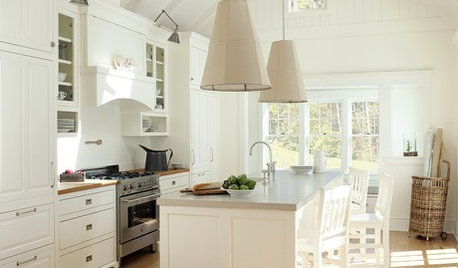
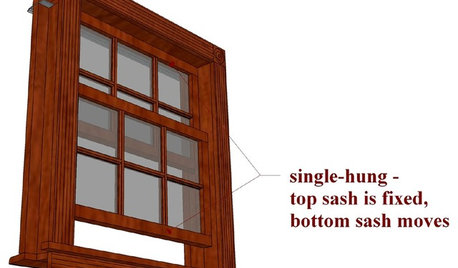


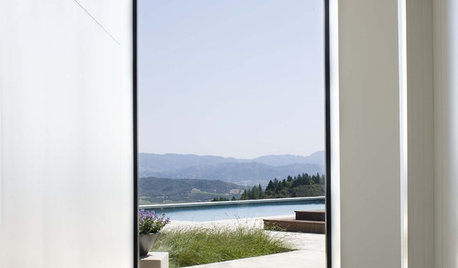

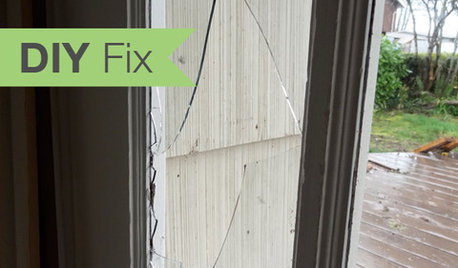
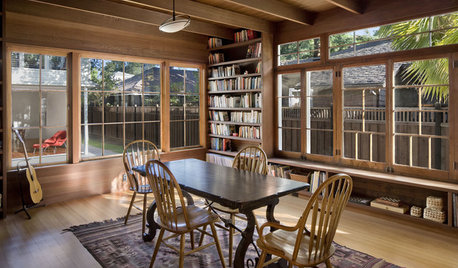








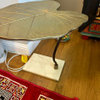
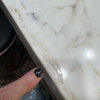

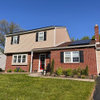
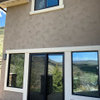

Windows on Washington Ltd